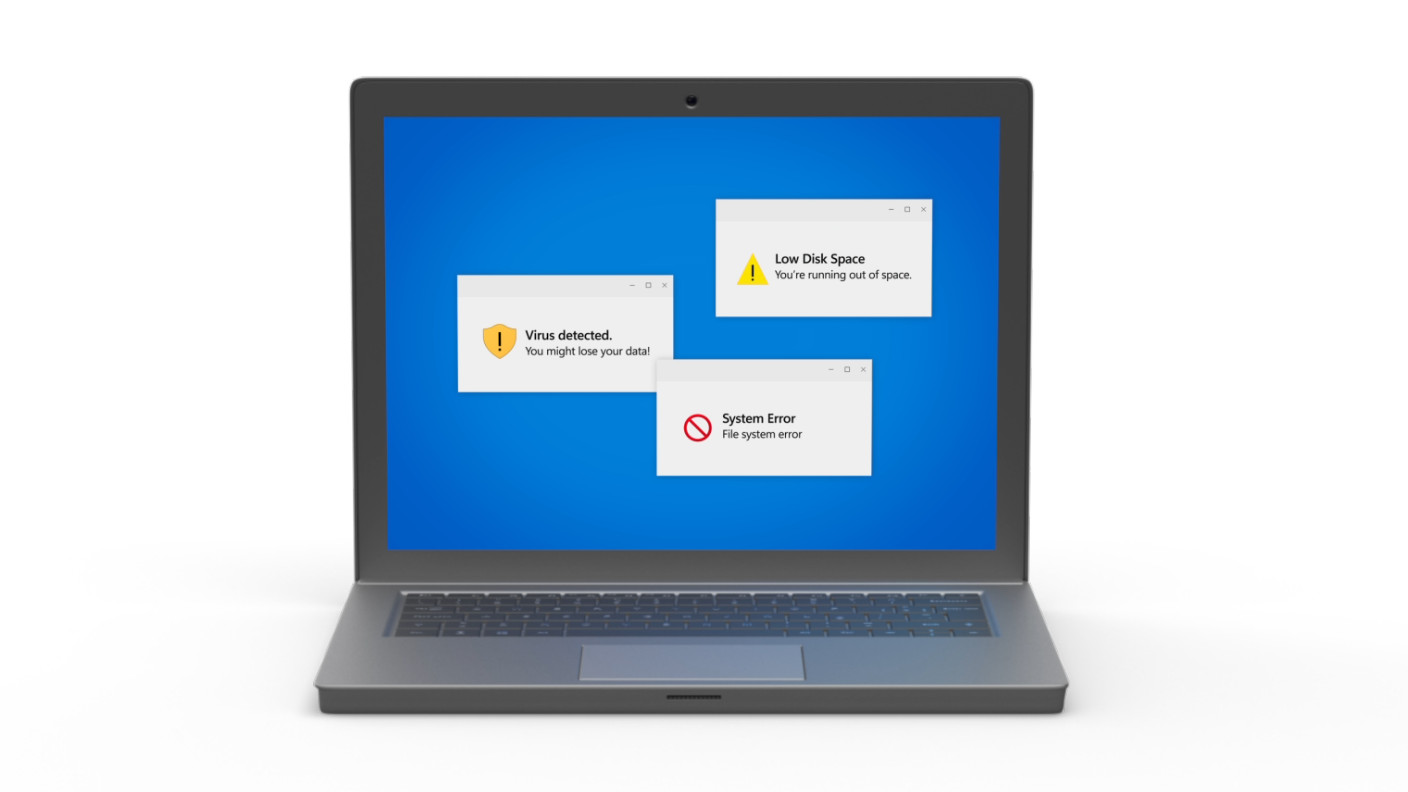- Google.com is showing a pop-up to promote Chromebooks
- It’s aimed at Windows 10 laptop owners as support ends for that OS
- The pop-up directs curious people to a Chromebook Plus portal, but Google is sailing close to the wind with some of the marketing used here
Google is taking advantage of the fact that Microsoft is about to end support for Windows 10 by showing a pop-up advertising the strengths of Chromebooks, in the hope that people will jump ship rather than upgrade to a new Windows 11 notebook.
Windows Latest spotted the ad which appeared when the tech site visited the Google.com search page.
Google’s pop-up reads: “Time for a new laptop? Get Chromebook Plus. With security fixes for Windows 10 ending this October, switch to the laptop that has never had a virus.”
Yes, the claws are well and truly out, and while this isn’t a suggestion that Windows notebooks are virus-prone, it’s clearly a hint in that direction – and certainly an argument that ChromeOS has better security.
Windows Latest tells us that if you click on the ‘Learn more’ button in the pop-up, you’ll be directed to Google’s ‘switch to Chromebook‘ portal, a website that sells the benefits of Chromebook Plus models (the more premium take on Google’s laptops).
Analysis: horses for courses

What’s really interesting here is the video that plays on the switch to Chromebook site when you first visit.
It shows a generic laptop (see the screenshot above) which isn’t explicitly a Windows notebook in any way, but it has a telltale ‘Microsoft blue’ background, and so again the hint is clear enough – particularly as one of the pop-ups that appears on the notebook display is a ‘virus detected’ warning, which was, of course, the thrust of the ad on Google.com. Another pop-up then shows a ‘system error’ happening before the laptop screen flickers, and then dies.
The biggest clue about where Google’s aiming this video potshot is the spinning circle (of doom) that’s shown (for ages) when the laptop first appears – which is a Windows thing. And, as mentioned, given that all this comes after clicking a link about abandoning Windows 10, well, you can draw your own conclusion.
So, this feels rather below-the-belt from Google, even if Chromebooks do have their clear merits – one of which is a very tight level of security. Although it’s hardly fair to even vaguely imply that Windows 11 falls down and is a slouch on this front (it isn’t).
A Chromebook could indeed be a compelling choice for those who are after a more streamlined way of working with a laptop. Google’s notebooks do have simplicity on their side – and affordability (though Chromebook Plus models are admittedly more premium efforts) – but you are making a number of compromises compared to Microsoft’s OS.
I’m not going to get into a full-on comparison of the relative merits of Windows 11 laptops and Chromebooks – we have an in-depth explainer on that, should you wish to stride forth into the weeds. The truth is they are quite different operating systems, but what Google isn’t touching on is that those who want to give Windows 11 a miss – or can’t upgrade due to not meeting its system requirements – may be more likely to gravitate towards Linux than ChromeOS. Especially given that you can find Linux distros which are built to be Windows-like and offer a newcomer from the Microsoft side of the fence a warmer welcome as such.
There’s another important point Google fails to mention, which is that those running a Windows 10 laptop can get another year of support for free, taking their laptop through to October 2026. There’s no rush to make a decision yet, then, and Google conveniently neglects to highlight this.
All’s fair in marketing and PR, though – right? And to be fair, all the tech giants engage in this kind of treading-a-thin-line style of promotion for their devices, software, or services.
I don’t know how widespread this particular Chromebook pop-up is, but I don’t see it at Google.com on my Windows 10 PC. I assume Windows Latest was running a Windows 10 system when the tech site saw the Google advert, though it doesn’t make that clear. It’s likely this is a targeted move which is being shown to some Windows 10 users by Google – possibly in a limited fashion at the moment.

